Francesca and Henk-Jan's Backpacking Trip!
Wednesday, July 21, 2010
The Forbidden City
The morning of the 20th of July Francesca and I headed for the Jinan train station. Since I’d had some watermelon I wasn’t terribly hungry, but Francesca needed breakfast. We didn’t have a terrible amount of time before our train left, so I ran out to grab her a meal from McDonald’s. The chips took a little longer than I hoped… I had to sprint back to the train station, burger in hand! Francesca stood in a now nearly empty waiting hall. We picked up the bags quickly and made our way to the train. It was still there!
The journey to Beijing was uneventful, with Francesca spending most of the time sleeping on my lap. When we arrived in Beijing I called our upcoming host, Kevin Xie. Kevin had offered to host us for a few days and we were excited to stay with him. He told us that we should come to his office first, since he was still at work. We took the train and met Kevin outside of the station. He asked us if we were hungry and took us for a bite at a nearby restaurant. It was too kind of him to buy me a salmon risotto and Francesca a cheese pizza. Kevin told us about his company, which he had begun to create a Chinese version of MeetUp (a site where you can register as a group and set up meetings). Their project was about to go live and they were still working frantically to get some last minute bugs out of the way. The food was followed by the walk to the office, where we met his staff and sat around for a while planning our evening.
Francesca had been very excited to show me the Beijing Opera, one of the many things she’d seen on her previous trip to China. We’d managed to get some cheap tickets online and had to pick up the tickets before the show. Due to time-constraints we couldn’t go back to Kevin’s place with him after he was done working. Luckily he offered to take our bags with him in the taxi after we’d taken the train to the station nearest to his house: Tiantongyuan North. He also told us to call him when we had returned to that station so he could arrange for a driver to pick us up and bring us to his place.
Francesca and I turned around after that and sat for another 50 minutes to meet the sales person. We had a little trouble locating her, but in the end we found the lady (called Iko) and were taken to the Qianmen Jianguo Hotel and its Liyuan Theater. We had a nice chat along the way and also asked for tips on getting to the Great Wall. Iko took us to our seats, right in front of the stage! There were even snacks waiting for us. Francesca talked to the elderly couple from Tasmania for a while, whilst I procured a headset for her that would give a little extra information on the Opera. I even got to take some pictures of the actors putting on make-up on.
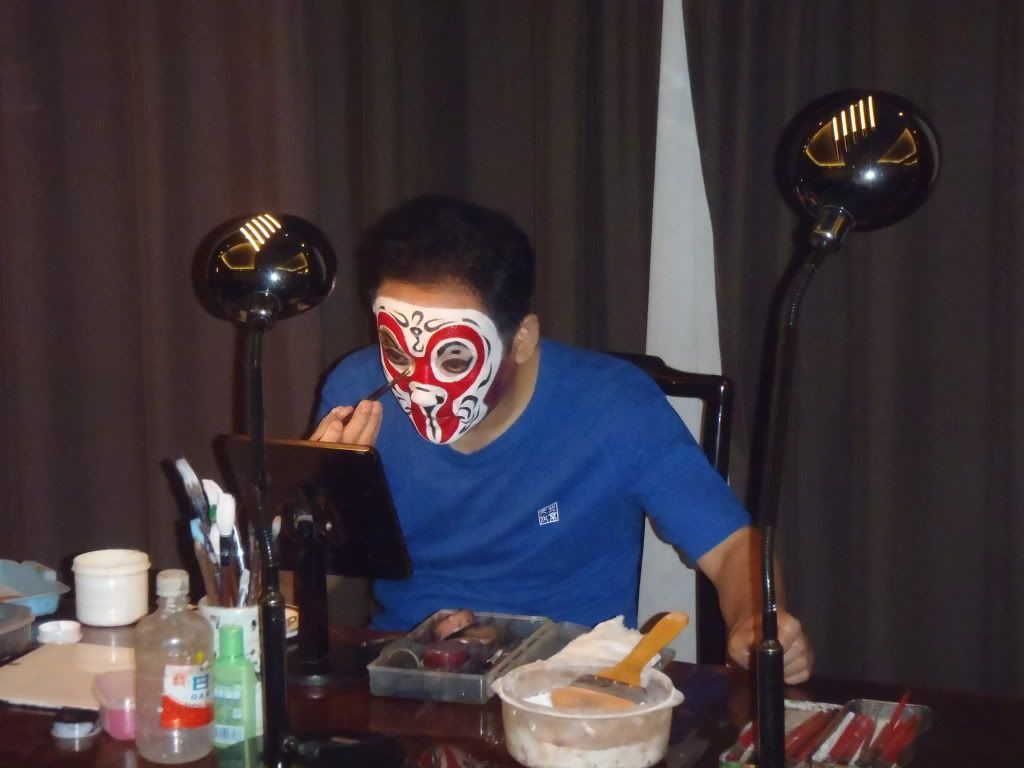
Francesca told me later the colors of the make-up signify different personality traits. “Different colors such as red, yellow, blue, white, black, purple, green, gold and silver are used for facial make-ups. The main color in a facial makeup symbolizes the disposition of the character. Red indicates devotion, courage and uprightness. Yellow signifies fierceness, ambition and cool-headedness. Blue represents staunchness, fierceness and astuteness. White suggests sinisterness, treacherousness, suspiciousness and craftiness. Black symbolizes roughness and fierceness. Purple stands for uprightness, sophistication and cool-headedness. Gold and silver colors are usually used for gods and spirits.”
Right before the show started our table got some pre-entertainment. A guy came over to pour tea for us and didn’t do this the boring old British way… No, he juggled with the pot for a while before pouring the tea from a meter over the cup.
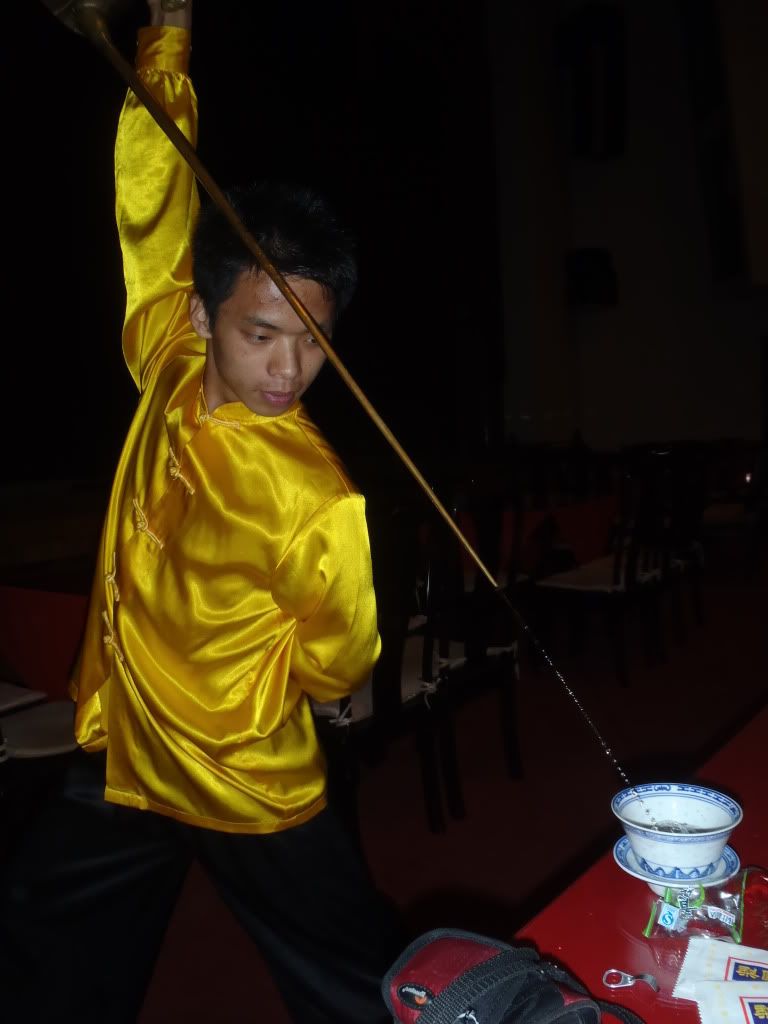
Around 7:30 PM the show got under way. The orchestra sat on the stage and played us some songs. Soon they were replaced by a singing lady, who told us the story of ‘Autumn River .’ It tells of the nun Chen, who meets the young scholar Pan, a nephew of the head nun, whilst he is studying at the nunnery for his exams. Chen and Pan fall in love, but the old nun disapproves and sends Pan away. When Chen finds out her lover is gone she makes her way to the river and looks to an old boatman for help. What follows is an entertaining dialogue between Chen and the boatman, who promises speed, but delivers nothing. Translations of the conversation popped up next to the stage – another cause for laughter since the Chinglish was quite amusing.
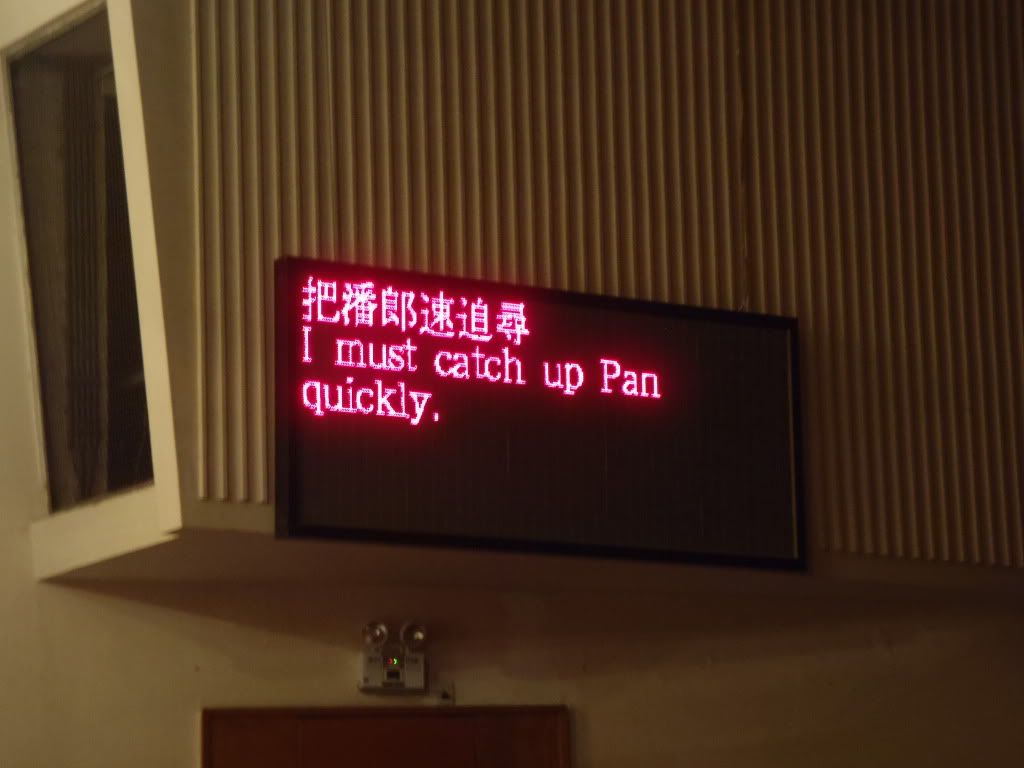
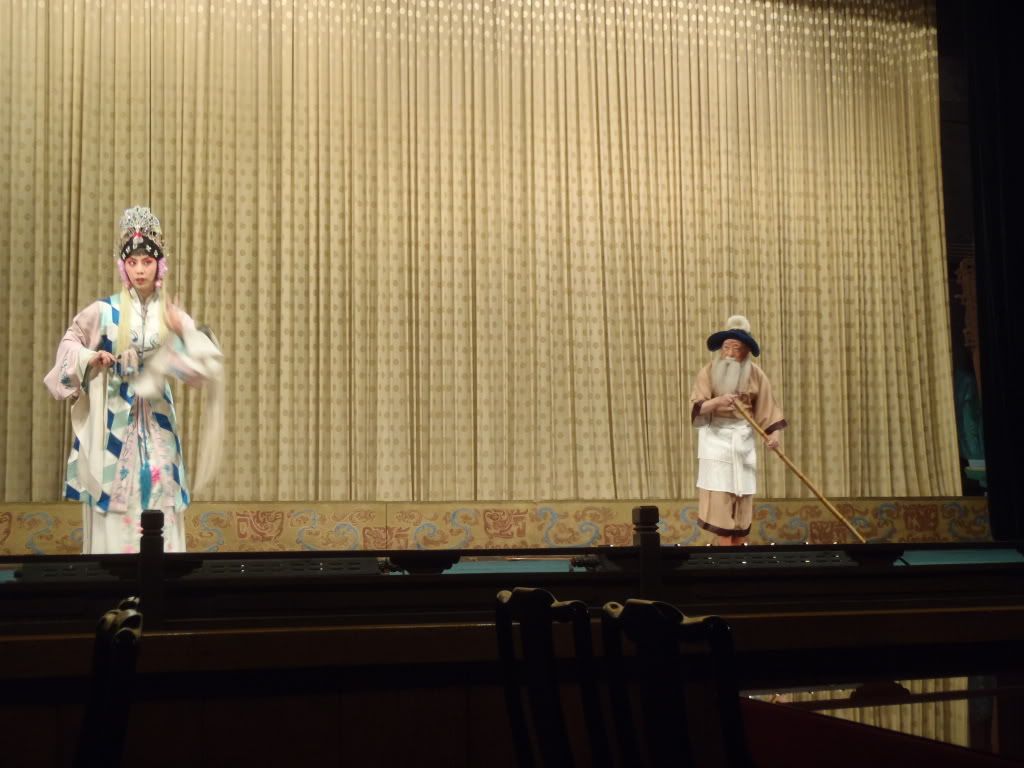
Much more impressive was the acrobatics shows called ‘The Monkey King Fights Against 18 Warriors.’ There was not a whole lot of dialogue, but the show made more than up for it. We saw the Monkey King go up against different enemies once, each bringing different tricks to the table but in the end all getting defeated. We later found out that the Monkey King was betrayed by the Gods on multiple occasions and had taken revenge by eating the Peaches of Immortality. As the Journal of Theatrical Combatives describes it: “Horrified, the gods mount their forces, including the Horse King, the River God, and other Immortals, and prepare to engage the Monkey King in battle with the intent to destroy him once and for all.” The fighting scenes were quite intense and definitely a pleasure to watch. I got some good pictures, but this video will show you a highlight of the evening!
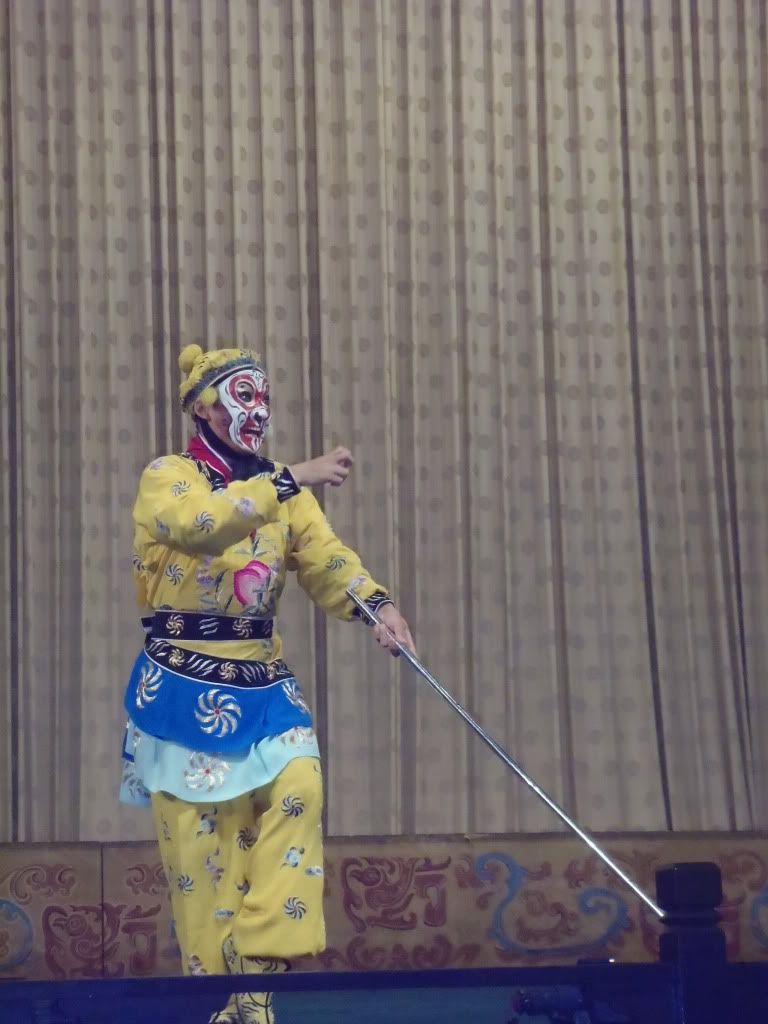
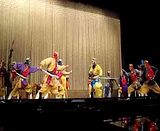
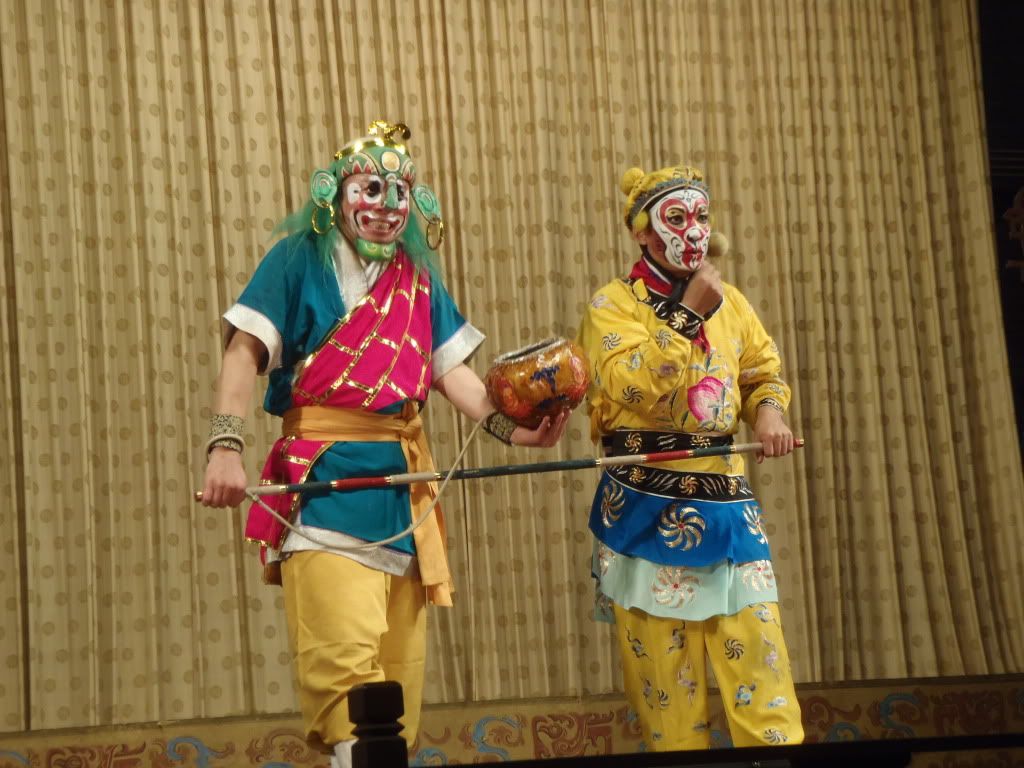
The show ended about an hour after it started. We spent some time looking at some extra information about the Beijing Opera, after which we went outside to grab a taxi and look for a nice restaurant. Francesca had been craving her Peking Duck and the Lonely Planet had listed several recommended places. I looked for the closest one and showed it to the driver. He wasn’t entirely sure how to get there but dropped us of on an intersection nearby. Sadly, Lonely Planet’s map was inaccurate and we spent the next hour walking around trying to find the restaurant. We were sent in different directions by locals and in the end just gave up when the clock struck 10:00 PM. We figured most restaurants had to be closing be now and we didn’t want to miss the last train either.
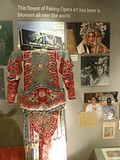
Around 11:00 PM we finally reached Tiantongyuan North again and found the driver to take us to Kevin’s place. I sat down with him for a while and he even warmed up some food for us, since we were still hungry. It was nice to talk to him, but we were both tired and sleepy, so Kevin and I prepared the beds in the separate room (with A/C! mandatory in Beijing’s relentless heat). Sleep came easy that night.
The next morning Francesca and I got up around 8:00 AM for an early start. We wanted to go to the Forbidden City and we figured we’d need most of the day for it. We took a taxi with Kevin to the subway station and then jumped on the train to Dongdan to switch trains to Tian’anmen Square. We popped up on the wrong side of the road, and weren’t entirely sure where we were. We just started walking and ended up looking at a large picture of Mao. We followed the people inside and soon realized we’d entered the Forbidden City.
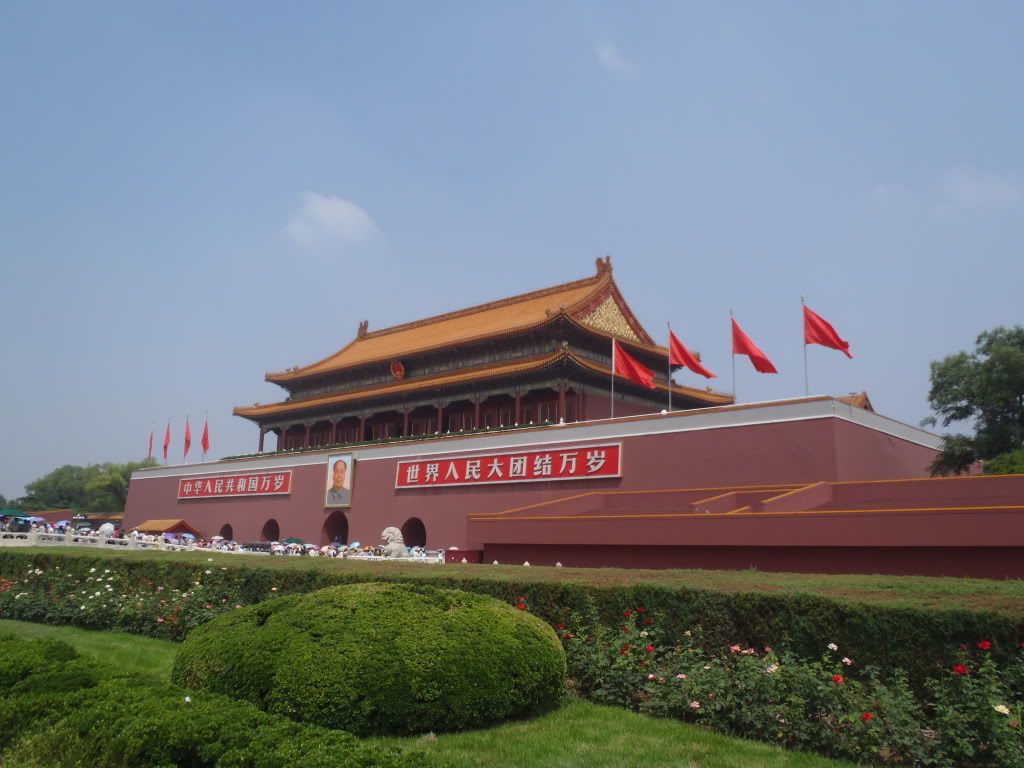
The queues for the tickets were seemingly endless. Furthermore, the sun was making it a pretty hot day. I wanted to spare Francesca the waiting and told her to sit down whilst I went for the tickets. I checked out the queues and realized one was much shorter than the others: the guides queue. I figured I’d just play dumb, hoping to get away with it. Whilst queuing I ended up talking to an American and his guide, who said I couldn’t get the tickets this way. I stayed put and even asked her to buy them for me. After a while she accepted, mostly because I said we’d be interested in her guiding services. Long story short: she got us the tickets and we joined her tour.
Francesca had already been to the Forbidden City, but for me it was a new experience. The mind conjures up a grand palace with magnificent halls. The truth is that it was all a little less spectacular than I had expected. But, first things first: I can’t leave you without any information about the Forbidden City after all.
The site of the Forbidden City was chosen after the second Ming Emperor Zhu Di moved the capital back from Nanjing to Beijing. The City’s construction started in 1406 and lasted until 1420. Over 1 million workers put their sweat, blood and tears into the project. The name is a translation of the Chinese ‘Zijin Cheng, ‘ which literally means ‘The Purple Forbidden City.’ ‘Purple’ because it refers to the North Star, which in turn signifies the Celestial Emperor; ‘Forbidden’ because only the Emperor could grant access to the palace; ‘Cheng’ because its literal translation is ‘walled city.’
Until the start of the 20th century the Forbidden City remained the center of Imperial power. A total of 24 Emperors from 3 different dynasties made it their home. Finally, in 1912 the last Emperor of China, Puvi of the Qing dynasty, was abdicated. The new Republic of China let Puvi live in the Inner Courts for some time, after which the artifacts were taken to safety. Finally, in 1987 the Forbidden City was declared a UNESCO World Heritage site.
That leaves us with the city itself. Our guide had us enter through the Meridian Gate, the largest of the 4 gates to the City. We crossed a few bridges and ended up in front of the Hall of Supreme Harmony. It was the ceremonial center of imperial power, and is also the largest surviving wooden structure in China. We admired the imperial throne inside for a while, listening to our guide’s explanations. We then continued north to the Hall of Central Harmony, a smaller, square hall, used by the Emperor to prepare and rest before and during ceremonies. Behind it, the Hall of Preserving Harmony, was used for rehearsing ceremonies, and was also the site of the final stage of the Imperial examination.
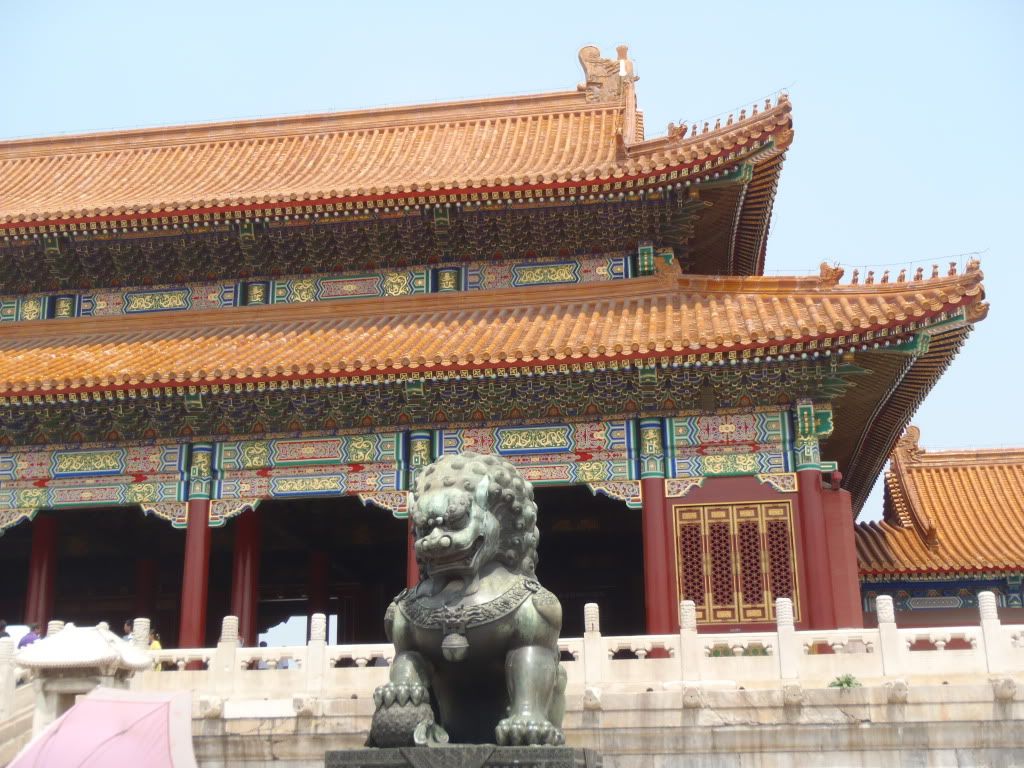
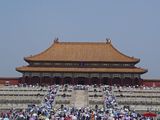
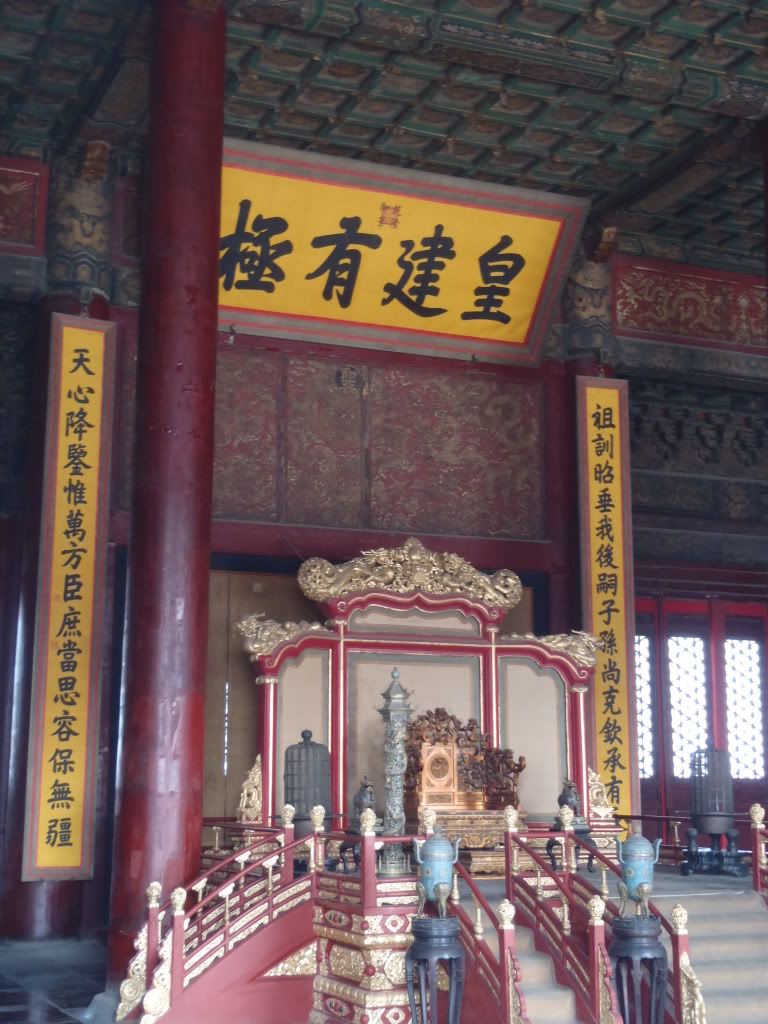
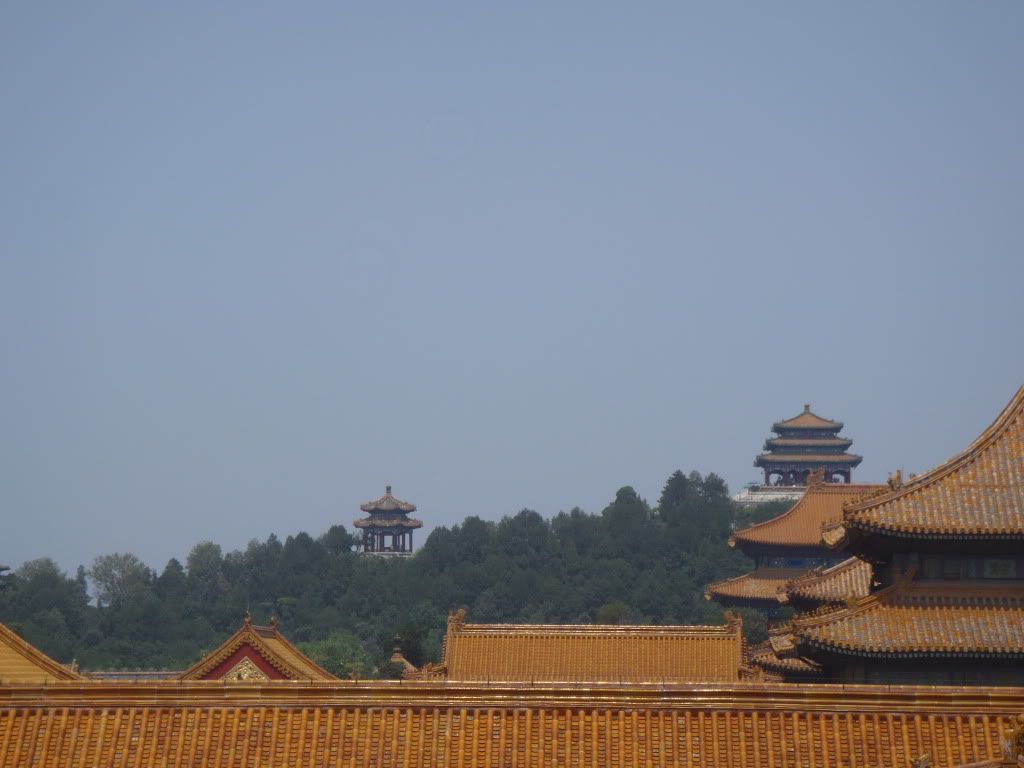
We took a little detour after these 3 halls and had a look at the artifacts in the Palace Museum. The exhibition was called ‘The Qing Emperors Grand Weddings’ and showed us all sorts of items used during these ceremonies. Highlight for Francesca was our guide’s explanation of the Ruyi, an item she had bought back in 2007 but never understood what it was used for. It turns out that it’s not a backscratcher or a belt hook… No, it’s a gift given by the Emperor to his concubines-to-be. The material decides the importance of the Ruyi, for only the jade one meant marriage for that lucky girl.
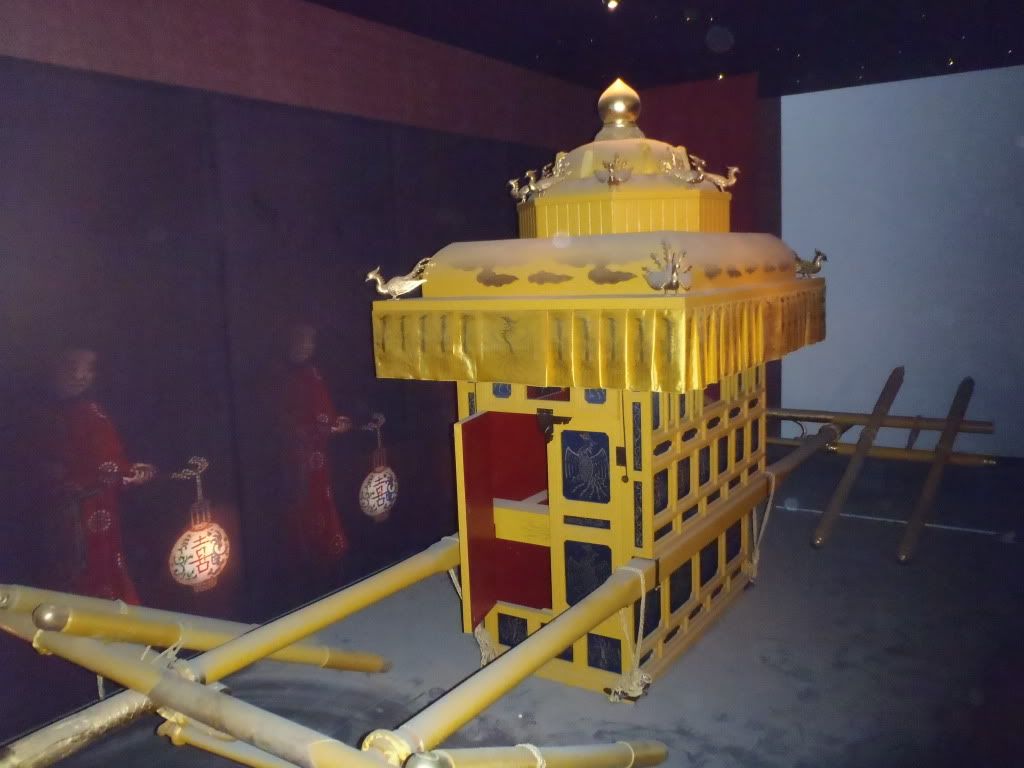
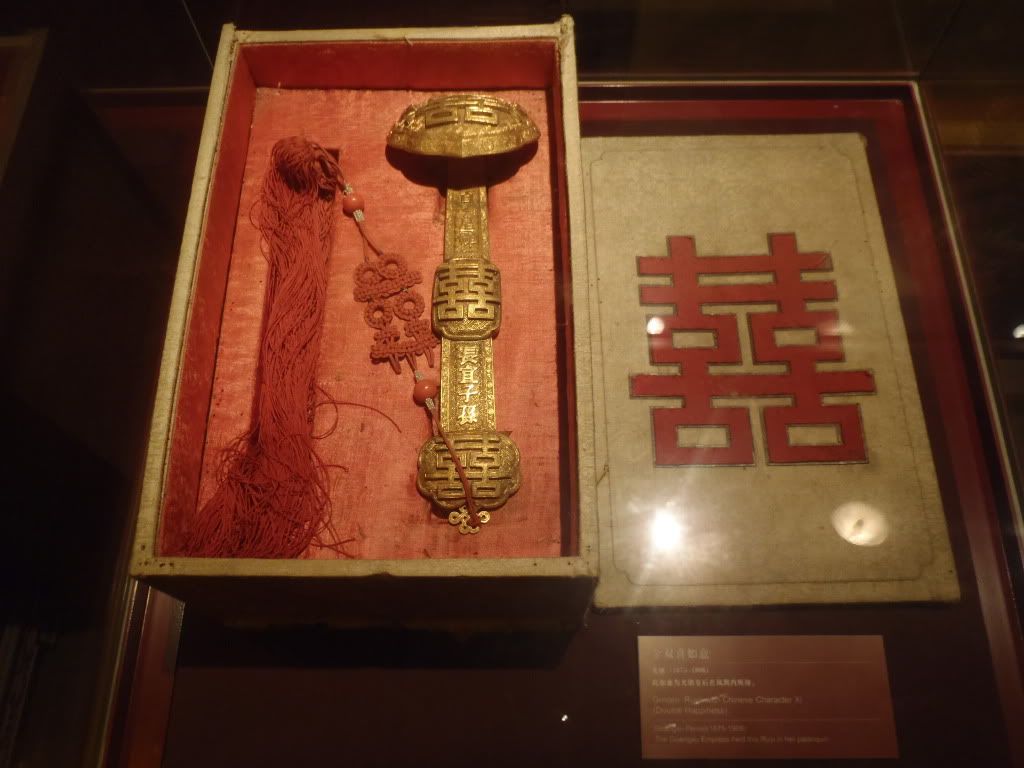
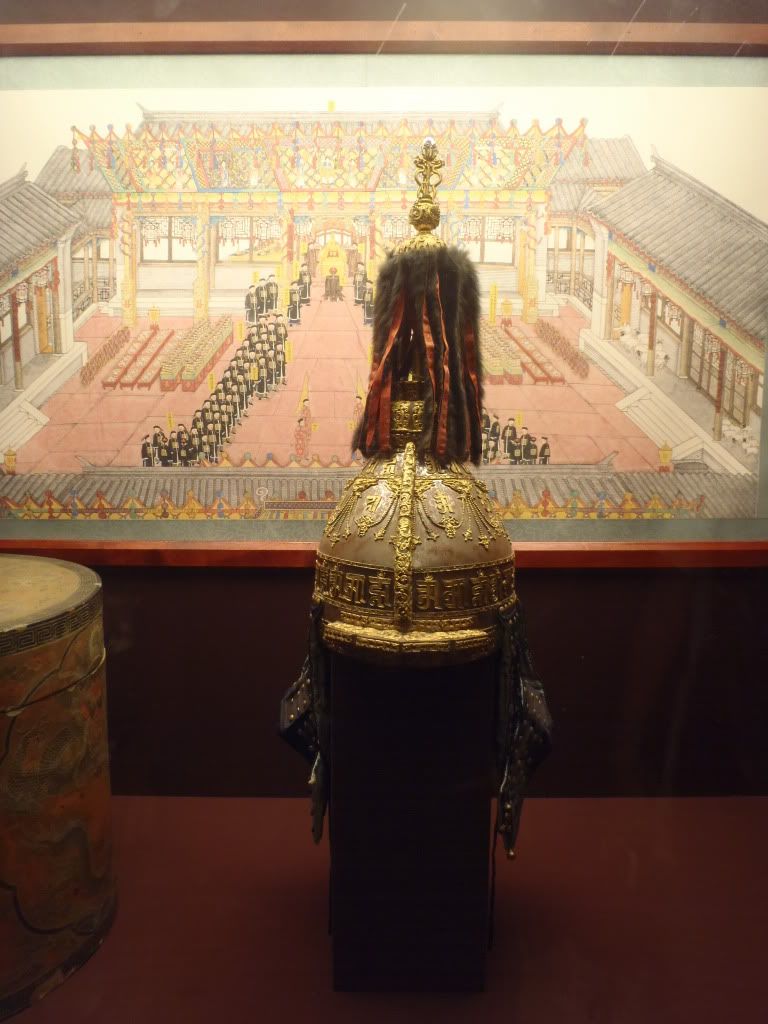
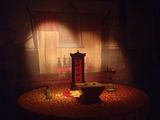
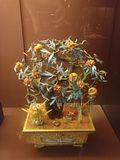
The tour continued with 3 halls in the Inner Courts of the City: The Palace of Heavenly Purity, The Hall of Union and Peace, and The Palace of Earthly Tranquility. I know, such serious-sounding names! But, there is a reason for all this eloquence, for these halls were used as housing for the Emperor and Empress. Wiki summarizes it perfectly: “The Emperor, representing Yang and the Heavens, would occupy the Palace of Heavenly Purity. The Empress, representing Yin and the Earth, would occupy the Palace of Earthly Tranquility. In between them was the Hall of Union, where the Yin and Yang mixed to produce harmony.”
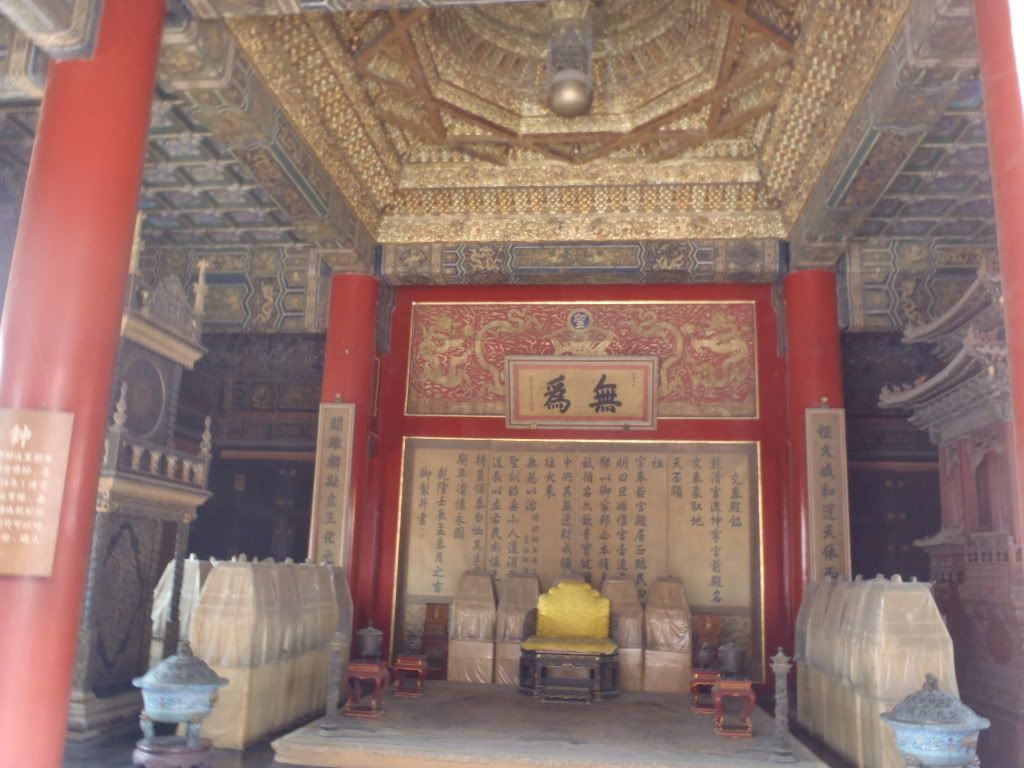
Again it was time for a detour, as our guide took us for a mandatory stop in one of the many calligraphy and arts shops. We were tempted to buy something, but decided it wasn’t worth the risk or money and spent a few Yuan on ice creams instead. Since our American companion did decide to buy something we had to wait for a while. Our patience was not tested for too long as the guide walked us through the Imperial Gardens. According to the signs the Gardens were used for amusement by the Emperors, Empresses and imperial Concubines. Furthermore, the Emperor used this place to expand his ever-growing harem. The Hill of Accumulated Elegance was the highlight of the Gardens, reaching 10 meters high and carrying some neat carvings of dragons and lions.
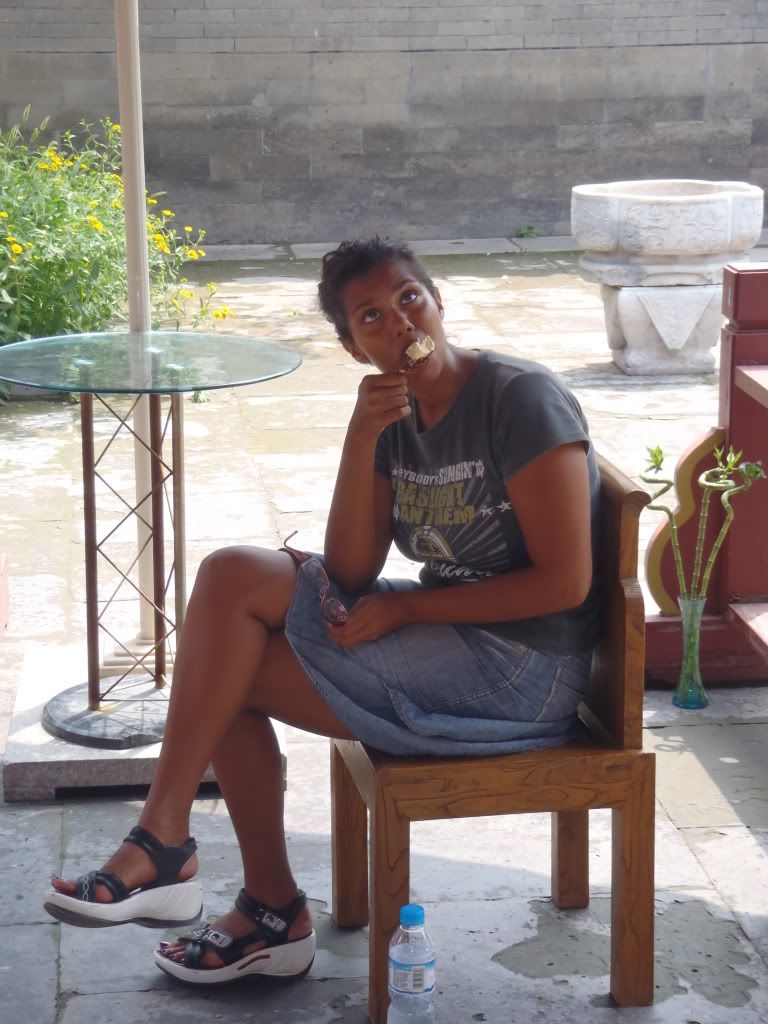
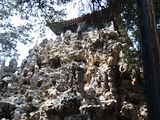
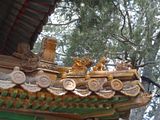
Our tour ended at the Gate of Divine Might, where we said goodbye to the American, paid the guide and walked off. We spotted the Jingshan Temple up on the hill in the distance, but decided we needed to get moving to admire some other attractions nearby. However, having just traversed the Forbidden City’s impressive 1 kilometer by foot we had set our sights on a taxi back to Tian’anmen Square. Finding one wasn’t a problem; finding one that would take us was… Empty cab after empty cab passed by, leaving us suffering in the heat. Our benign theory is that the drivers weren’t allowed to stop where we were standing. Knowing the Han Chinese a little by now though, we think it might also be laziness (not wanting to speak English) or plain old racism (something the Han Chinese are infamous for.) Either way, I ended up finding us a bus to the Square.
The bus let us off near Mao’s Memorial Hall, which we found closed. I made a mental note of the opening hours and led Francesca past the Qian Gate, Beijing’s largest and supposedly most beautiful gate. We couldn’t get ourselves to climb the steps and continued walking. I tried to follow Lonely Planet’s map to get us to the Police Museum, but ended up on several wrong streets. We did spot the Beijing Railway Museum, but decided that would be a waste of time. We figured the outside looked nicer than the inside ever could. Luckily some cops finally pointed us in the right direction. We weren’t allowed to take pictures inside, but frankly, it wasn’t worth it. Most of the artifacts on display were relatively new guns and rifles. A little more interesting were the pictures of criminals. Unfortunately the English captions were very usually no more than a few words, so the stories behind the photos were lost on us.
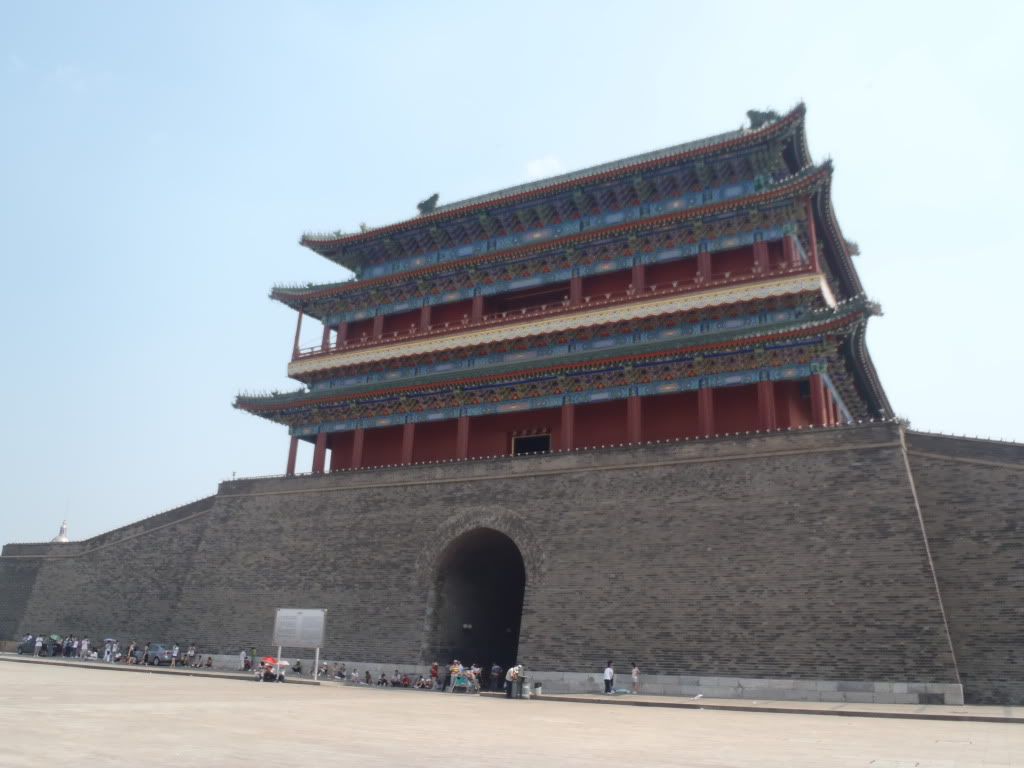
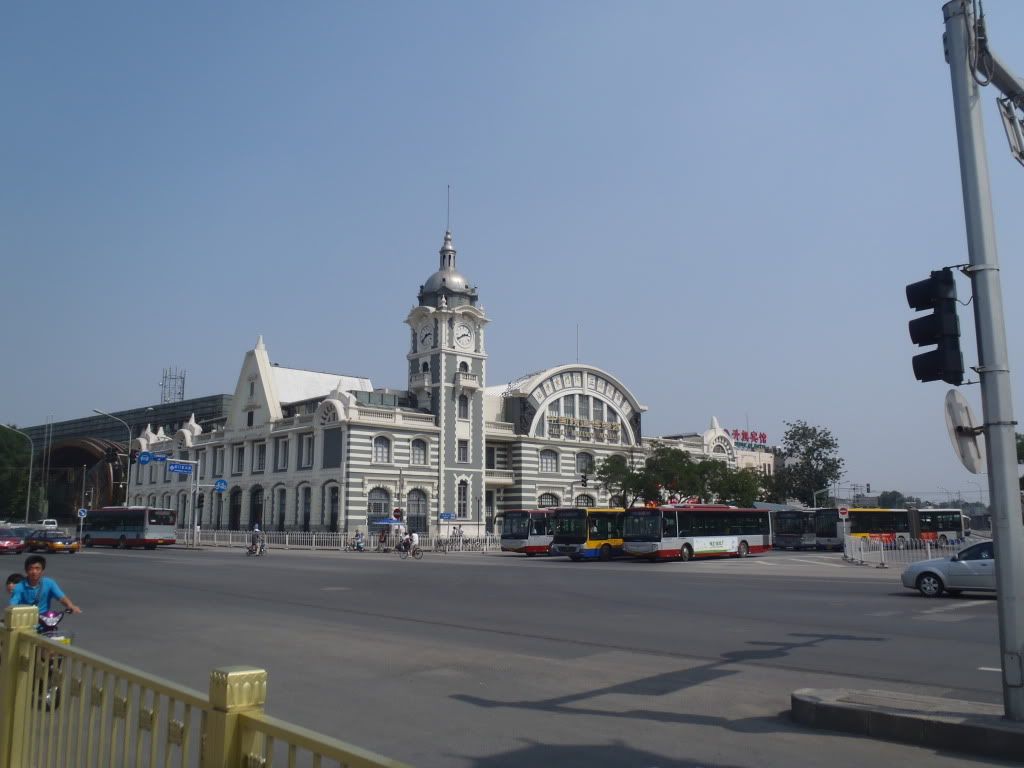
Walking back to Tian’anmen Square to find a taxi was another challenge. Again, drivers kept on passing us… When we finally made it back to the main road Francesca spotted a parked cab with a smoking driver. He smiled when I showed him directions to the restaurant we wanted to go to and actually managed to say a few things in English. It’s funny how you start to appreciate these small gestures of good will so much more after always having so much trouble trying to explain things to the Chinese.
Francesca and I arrived at the Quan Jude Roast Duck Restaurant around 4:30 PM. We didn’t realize that the doors to the restaurant proper didn’t open until 5:00 PM so we had to sit around for a while waiting for Francesca long-awaited Peking Duck. The doors opened and people rushed in to get tables. A nice one near the window seemed perfect to us, but screaming, smoking Chinese people made us change our mind. We found another spot and eagerly anticipated our half-duck. We’d ordered modestly, not knowing how much we’d actually get… Francesca nearly started drooling after she spotted the freshly roasted ducks coming out of the ovens.
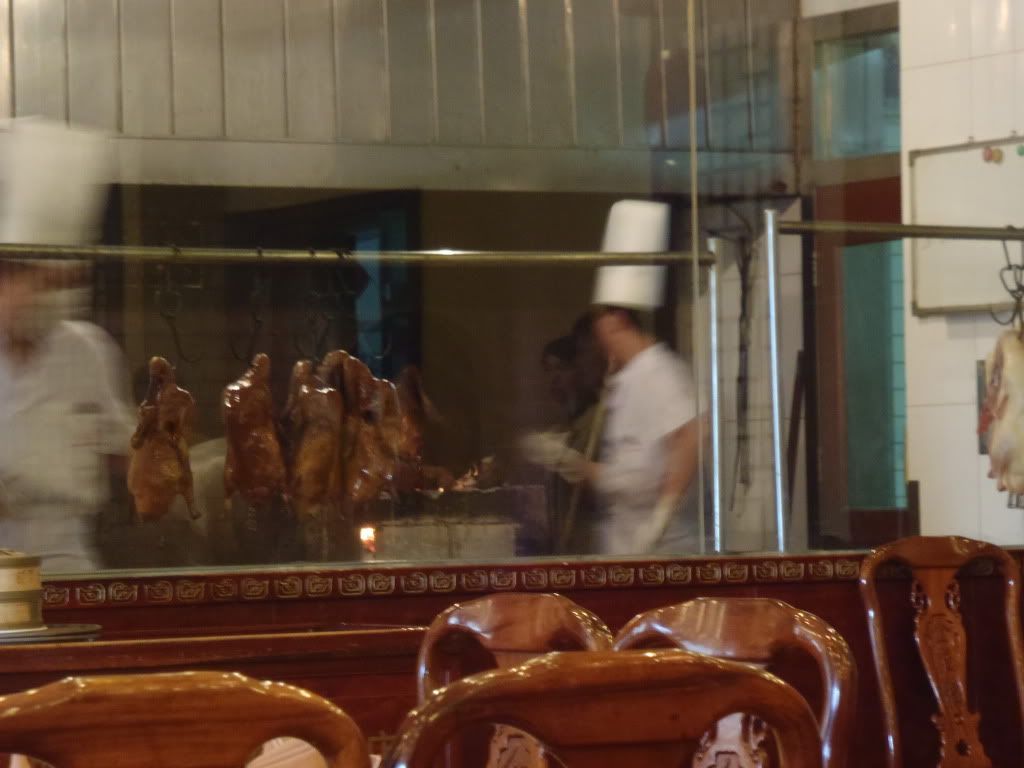
One of the first ones that made it out of the oven was brought to us. A chef skillfully sliced up half a duck and delivered the meat to the table. A waitress explained the process of making little Peking Duck pancakes to us: first you take a little pancake, which you cover in plum sauce and add scallions to, after which you add some duck to finish the whole thing off by rolling the pancake up and eating the whole thing. A second delicacy is the duck skin, which is picked up and first dipped into plum sauce and then sugar. Francesca surprised me as she skillfully prepared herself the little snacks. Before we knew it the plate was empty and we had to order another half-duck to fill us up.
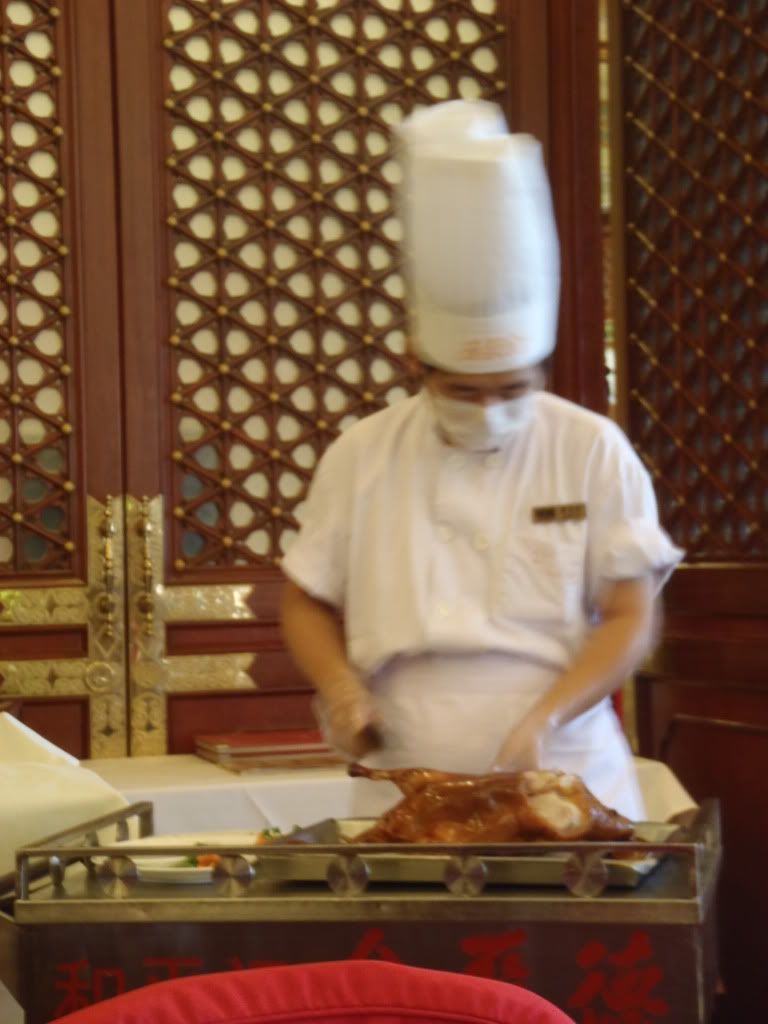
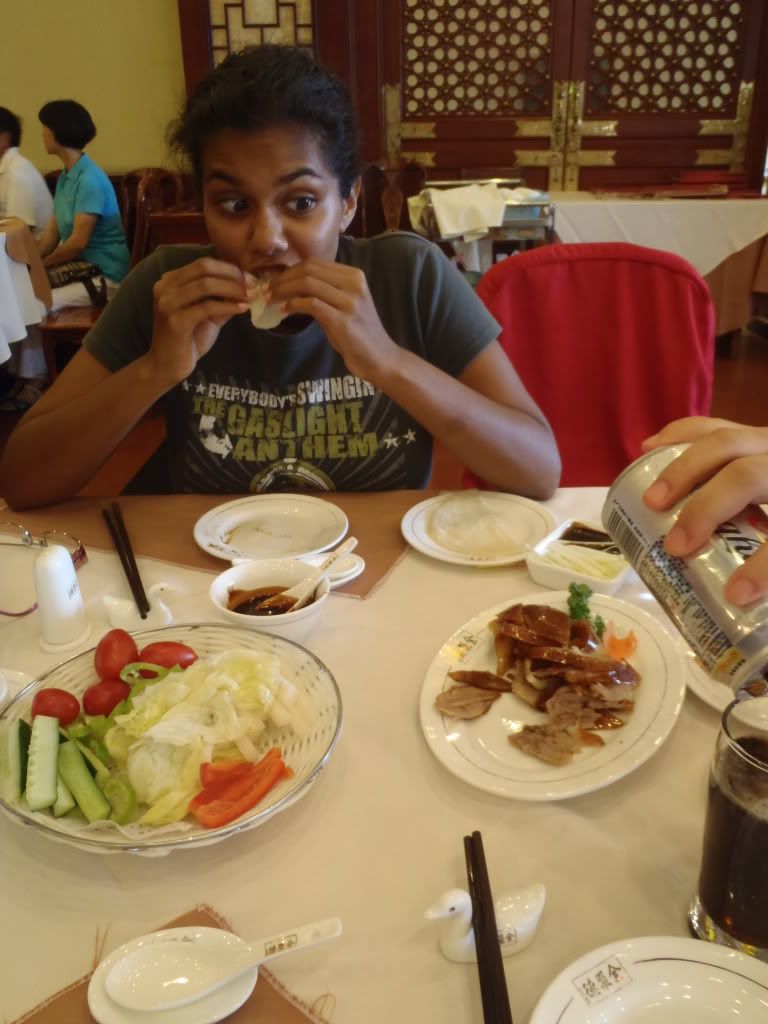
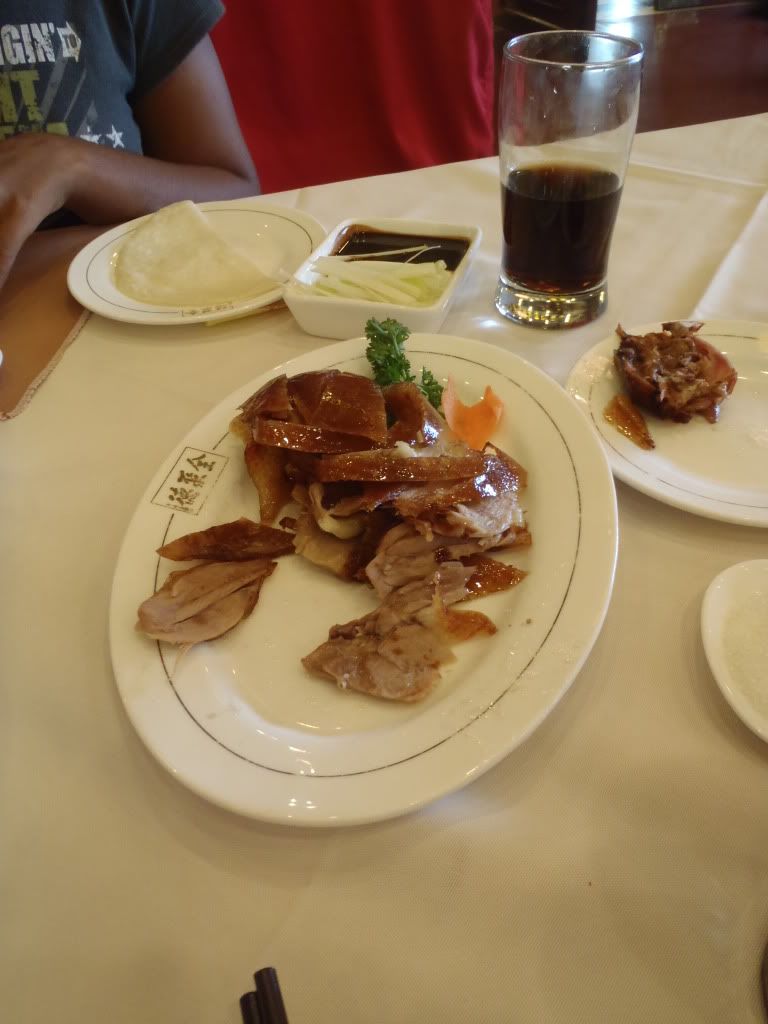
The second duck was as sumptuous as the first one. We didn’t manage to finish all of it and got the left-overs to go. A subway station happened to be nearby, and the 1 hour plus commute could begin once more. We reached Tiantongyuan North well past 7:00 PM, picked up a watermelon for Kevin and jumped in the taxi.
The journey to Beijing was uneventful, with Francesca spending most of the time sleeping on my lap. When we arrived in Beijing I called our upcoming host, Kevin Xie. Kevin had offered to host us for a few days and we were excited to stay with him. He told us that we should come to his office first, since he was still at work. We took the train and met Kevin outside of the station. He asked us if we were hungry and took us for a bite at a nearby restaurant. It was too kind of him to buy me a salmon risotto and Francesca a cheese pizza. Kevin told us about his company, which he had begun to create a Chinese version of MeetUp (a site where you can register as a group and set up meetings). Their project was about to go live and they were still working frantically to get some last minute bugs out of the way. The food was followed by the walk to the office, where we met his staff and sat around for a while planning our evening.
Francesca had been very excited to show me the Beijing Opera, one of the many things she’d seen on her previous trip to China. We’d managed to get some cheap tickets online and had to pick up the tickets before the show. Due to time-constraints we couldn’t go back to Kevin’s place with him after he was done working. Luckily he offered to take our bags with him in the taxi after we’d taken the train to the station nearest to his house: Tiantongyuan North. He also told us to call him when we had returned to that station so he could arrange for a driver to pick us up and bring us to his place.
Francesca and I turned around after that and sat for another 50 minutes to meet the sales person. We had a little trouble locating her, but in the end we found the lady (called Iko) and were taken to the Qianmen Jianguo Hotel and its Liyuan Theater. We had a nice chat along the way and also asked for tips on getting to the Great Wall. Iko took us to our seats, right in front of the stage! There were even snacks waiting for us. Francesca talked to the elderly couple from Tasmania for a while, whilst I procured a headset for her that would give a little extra information on the Opera. I even got to take some pictures of the actors putting on make-up on.

Francesca told me later the colors of the make-up signify different personality traits. “Different colors such as red, yellow, blue, white, black, purple, green, gold and silver are used for facial make-ups. The main color in a facial makeup symbolizes the disposition of the character. Red indicates devotion, courage and uprightness. Yellow signifies fierceness, ambition and cool-headedness. Blue represents staunchness, fierceness and astuteness. White suggests sinisterness, treacherousness, suspiciousness and craftiness. Black symbolizes roughness and fierceness. Purple stands for uprightness, sophistication and cool-headedness. Gold and silver colors are usually used for gods and spirits.”
Right before the show started our table got some pre-entertainment. A guy came over to pour tea for us and didn’t do this the boring old British way… No, he juggled with the pot for a while before pouring the tea from a meter over the cup.

Around 7:30 PM the show got under way. The orchestra sat on the stage and played us some songs. Soon they were replaced by a singing lady, who told us the story of ‘Autumn River .’ It tells of the nun Chen, who meets the young scholar Pan, a nephew of the head nun, whilst he is studying at the nunnery for his exams. Chen and Pan fall in love, but the old nun disapproves and sends Pan away. When Chen finds out her lover is gone she makes her way to the river and looks to an old boatman for help. What follows is an entertaining dialogue between Chen and the boatman, who promises speed, but delivers nothing. Translations of the conversation popped up next to the stage – another cause for laughter since the Chinglish was quite amusing.


Much more impressive was the acrobatics shows called ‘The Monkey King Fights Against 18 Warriors.’ There was not a whole lot of dialogue, but the show made more than up for it. We saw the Monkey King go up against different enemies once, each bringing different tricks to the table but in the end all getting defeated. We later found out that the Monkey King was betrayed by the Gods on multiple occasions and had taken revenge by eating the Peaches of Immortality. As the Journal of Theatrical Combatives describes it: “Horrified, the gods mount their forces, including the Horse King, the River God, and other Immortals, and prepare to engage the Monkey King in battle with the intent to destroy him once and for all.” The fighting scenes were quite intense and definitely a pleasure to watch. I got some good pictures, but this video will show you a highlight of the evening!



The show ended about an hour after it started. We spent some time looking at some extra information about the Beijing Opera, after which we went outside to grab a taxi and look for a nice restaurant. Francesca had been craving her Peking Duck and the Lonely Planet had listed several recommended places. I looked for the closest one and showed it to the driver. He wasn’t entirely sure how to get there but dropped us of on an intersection nearby. Sadly, Lonely Planet’s map was inaccurate and we spent the next hour walking around trying to find the restaurant. We were sent in different directions by locals and in the end just gave up when the clock struck 10:00 PM. We figured most restaurants had to be closing be now and we didn’t want to miss the last train either.

Around 11:00 PM we finally reached Tiantongyuan North again and found the driver to take us to Kevin’s place. I sat down with him for a while and he even warmed up some food for us, since we were still hungry. It was nice to talk to him, but we were both tired and sleepy, so Kevin and I prepared the beds in the separate room (with A/C! mandatory in Beijing’s relentless heat). Sleep came easy that night.
The next morning Francesca and I got up around 8:00 AM for an early start. We wanted to go to the Forbidden City and we figured we’d need most of the day for it. We took a taxi with Kevin to the subway station and then jumped on the train to Dongdan to switch trains to Tian’anmen Square. We popped up on the wrong side of the road, and weren’t entirely sure where we were. We just started walking and ended up looking at a large picture of Mao. We followed the people inside and soon realized we’d entered the Forbidden City.

The queues for the tickets were seemingly endless. Furthermore, the sun was making it a pretty hot day. I wanted to spare Francesca the waiting and told her to sit down whilst I went for the tickets. I checked out the queues and realized one was much shorter than the others: the guides queue. I figured I’d just play dumb, hoping to get away with it. Whilst queuing I ended up talking to an American and his guide, who said I couldn’t get the tickets this way. I stayed put and even asked her to buy them for me. After a while she accepted, mostly because I said we’d be interested in her guiding services. Long story short: she got us the tickets and we joined her tour.
Francesca had already been to the Forbidden City, but for me it was a new experience. The mind conjures up a grand palace with magnificent halls. The truth is that it was all a little less spectacular than I had expected. But, first things first: I can’t leave you without any information about the Forbidden City after all.
The site of the Forbidden City was chosen after the second Ming Emperor Zhu Di moved the capital back from Nanjing to Beijing. The City’s construction started in 1406 and lasted until 1420. Over 1 million workers put their sweat, blood and tears into the project. The name is a translation of the Chinese ‘Zijin Cheng, ‘ which literally means ‘The Purple Forbidden City.’ ‘Purple’ because it refers to the North Star, which in turn signifies the Celestial Emperor; ‘Forbidden’ because only the Emperor could grant access to the palace; ‘Cheng’ because its literal translation is ‘walled city.’
Until the start of the 20th century the Forbidden City remained the center of Imperial power. A total of 24 Emperors from 3 different dynasties made it their home. Finally, in 1912 the last Emperor of China, Puvi of the Qing dynasty, was abdicated. The new Republic of China let Puvi live in the Inner Courts for some time, after which the artifacts were taken to safety. Finally, in 1987 the Forbidden City was declared a UNESCO World Heritage site.
That leaves us with the city itself. Our guide had us enter through the Meridian Gate, the largest of the 4 gates to the City. We crossed a few bridges and ended up in front of the Hall of Supreme Harmony. It was the ceremonial center of imperial power, and is also the largest surviving wooden structure in China. We admired the imperial throne inside for a while, listening to our guide’s explanations. We then continued north to the Hall of Central Harmony, a smaller, square hall, used by the Emperor to prepare and rest before and during ceremonies. Behind it, the Hall of Preserving Harmony, was used for rehearsing ceremonies, and was also the site of the final stage of the Imperial examination.




We took a little detour after these 3 halls and had a look at the artifacts in the Palace Museum. The exhibition was called ‘The Qing Emperors Grand Weddings’ and showed us all sorts of items used during these ceremonies. Highlight for Francesca was our guide’s explanation of the Ruyi, an item she had bought back in 2007 but never understood what it was used for. It turns out that it’s not a backscratcher or a belt hook… No, it’s a gift given by the Emperor to his concubines-to-be. The material decides the importance of the Ruyi, for only the jade one meant marriage for that lucky girl.





The tour continued with 3 halls in the Inner Courts of the City: The Palace of Heavenly Purity, The Hall of Union and Peace, and The Palace of Earthly Tranquility. I know, such serious-sounding names! But, there is a reason for all this eloquence, for these halls were used as housing for the Emperor and Empress. Wiki summarizes it perfectly: “The Emperor, representing Yang and the Heavens, would occupy the Palace of Heavenly Purity. The Empress, representing Yin and the Earth, would occupy the Palace of Earthly Tranquility. In between them was the Hall of Union, where the Yin and Yang mixed to produce harmony.”

Again it was time for a detour, as our guide took us for a mandatory stop in one of the many calligraphy and arts shops. We were tempted to buy something, but decided it wasn’t worth the risk or money and spent a few Yuan on ice creams instead. Since our American companion did decide to buy something we had to wait for a while. Our patience was not tested for too long as the guide walked us through the Imperial Gardens. According to the signs the Gardens were used for amusement by the Emperors, Empresses and imperial Concubines. Furthermore, the Emperor used this place to expand his ever-growing harem. The Hill of Accumulated Elegance was the highlight of the Gardens, reaching 10 meters high and carrying some neat carvings of dragons and lions.



Our tour ended at the Gate of Divine Might, where we said goodbye to the American, paid the guide and walked off. We spotted the Jingshan Temple up on the hill in the distance, but decided we needed to get moving to admire some other attractions nearby. However, having just traversed the Forbidden City’s impressive 1 kilometer by foot we had set our sights on a taxi back to Tian’anmen Square. Finding one wasn’t a problem; finding one that would take us was… Empty cab after empty cab passed by, leaving us suffering in the heat. Our benign theory is that the drivers weren’t allowed to stop where we were standing. Knowing the Han Chinese a little by now though, we think it might also be laziness (not wanting to speak English) or plain old racism (something the Han Chinese are infamous for.) Either way, I ended up finding us a bus to the Square.
The bus let us off near Mao’s Memorial Hall, which we found closed. I made a mental note of the opening hours and led Francesca past the Qian Gate, Beijing’s largest and supposedly most beautiful gate. We couldn’t get ourselves to climb the steps and continued walking. I tried to follow Lonely Planet’s map to get us to the Police Museum, but ended up on several wrong streets. We did spot the Beijing Railway Museum, but decided that would be a waste of time. We figured the outside looked nicer than the inside ever could. Luckily some cops finally pointed us in the right direction. We weren’t allowed to take pictures inside, but frankly, it wasn’t worth it. Most of the artifacts on display were relatively new guns and rifles. A little more interesting were the pictures of criminals. Unfortunately the English captions were very usually no more than a few words, so the stories behind the photos were lost on us.


Walking back to Tian’anmen Square to find a taxi was another challenge. Again, drivers kept on passing us… When we finally made it back to the main road Francesca spotted a parked cab with a smoking driver. He smiled when I showed him directions to the restaurant we wanted to go to and actually managed to say a few things in English. It’s funny how you start to appreciate these small gestures of good will so much more after always having so much trouble trying to explain things to the Chinese.
Francesca and I arrived at the Quan Jude Roast Duck Restaurant around 4:30 PM. We didn’t realize that the doors to the restaurant proper didn’t open until 5:00 PM so we had to sit around for a while waiting for Francesca long-awaited Peking Duck. The doors opened and people rushed in to get tables. A nice one near the window seemed perfect to us, but screaming, smoking Chinese people made us change our mind. We found another spot and eagerly anticipated our half-duck. We’d ordered modestly, not knowing how much we’d actually get… Francesca nearly started drooling after she spotted the freshly roasted ducks coming out of the ovens.

One of the first ones that made it out of the oven was brought to us. A chef skillfully sliced up half a duck and delivered the meat to the table. A waitress explained the process of making little Peking Duck pancakes to us: first you take a little pancake, which you cover in plum sauce and add scallions to, after which you add some duck to finish the whole thing off by rolling the pancake up and eating the whole thing. A second delicacy is the duck skin, which is picked up and first dipped into plum sauce and then sugar. Francesca surprised me as she skillfully prepared herself the little snacks. Before we knew it the plate was empty and we had to order another half-duck to fill us up.



The second duck was as sumptuous as the first one. We didn’t manage to finish all of it and got the left-overs to go. A subway station happened to be nearby, and the 1 hour plus commute could begin once more. We reached Tiantongyuan North well past 7:00 PM, picked up a watermelon for Kevin and jumped in the taxi.

1 Comments:
Hallo Lieverds, Het is zaterdagmorgen 8 uur.Ik heb net nog weer een van jullie mooie verhalen zitten te lezen. Heel mooi allemaal.Waar zitten jullie nu.Heb je mijn mailtje ook ontvangen Wanner komen jullie naar huis. Heel veel liefs Omaxx
Post a Comment
<< Home